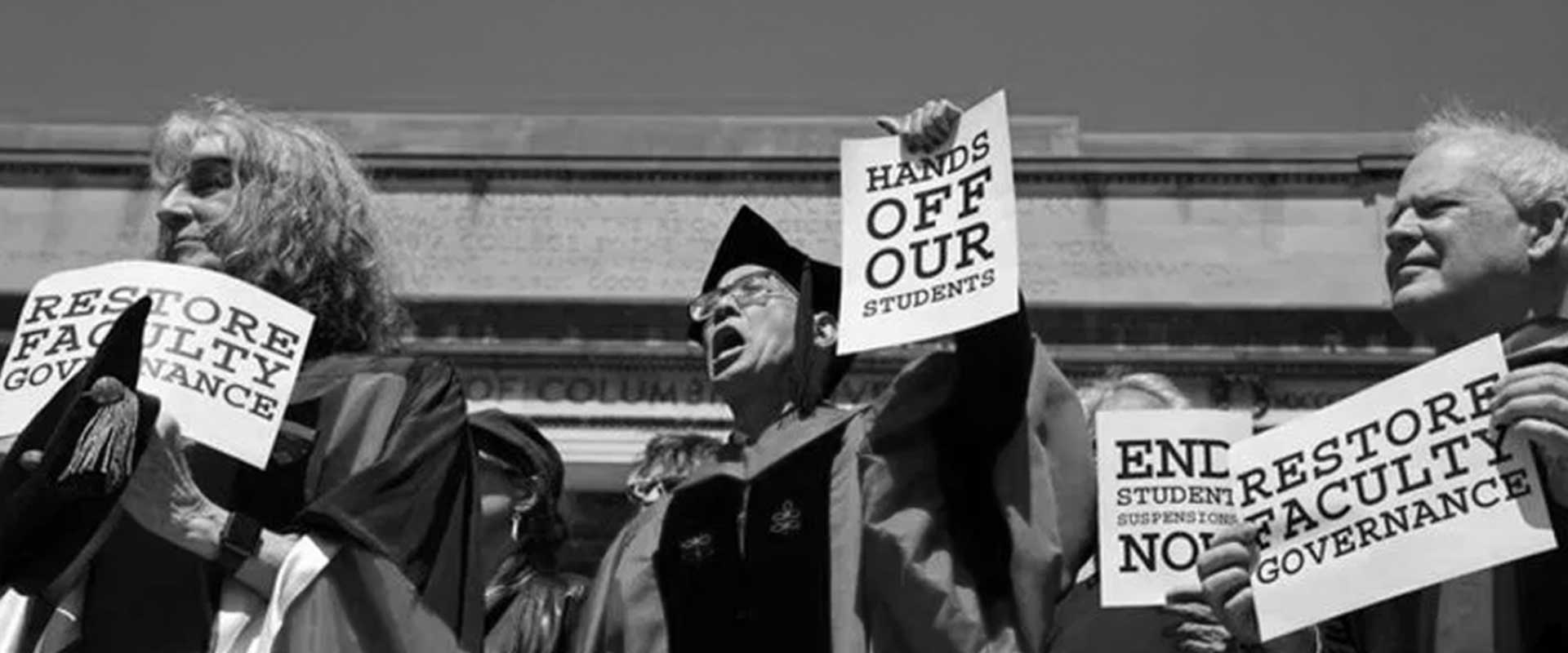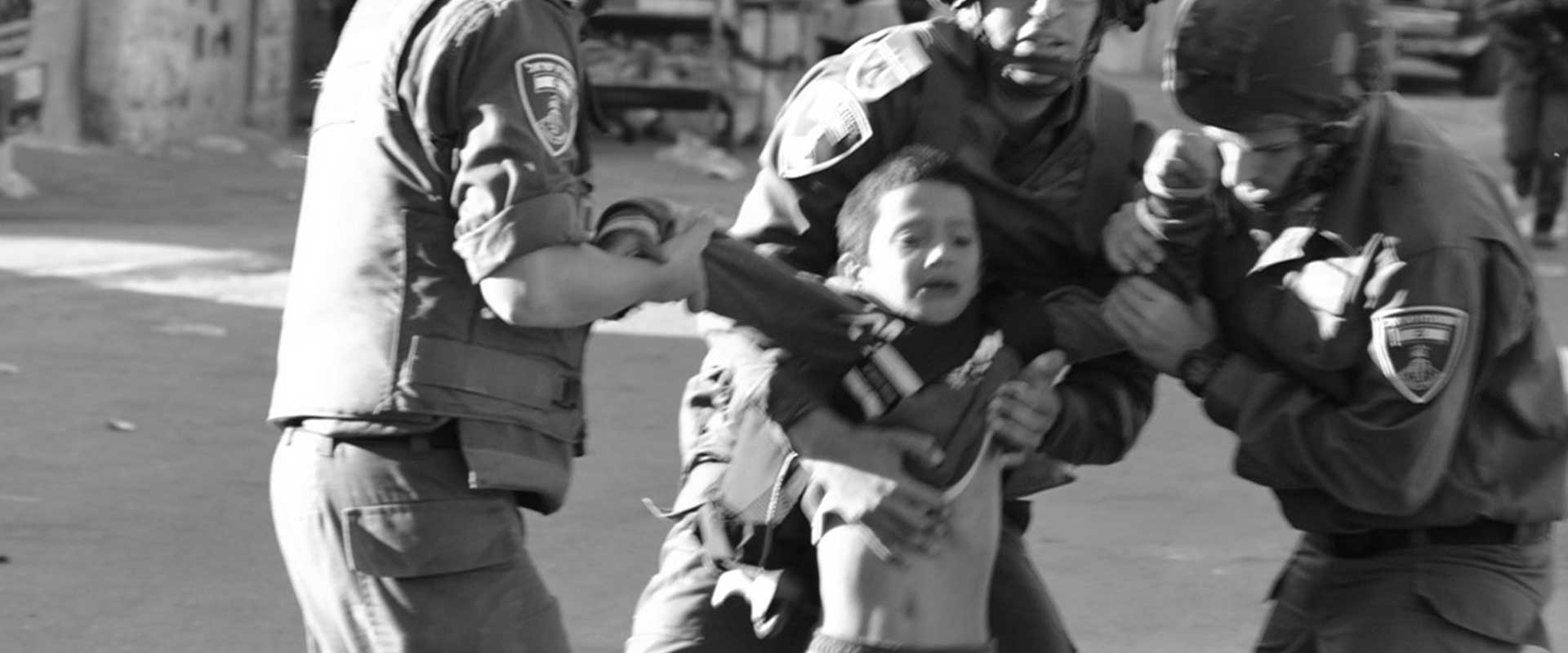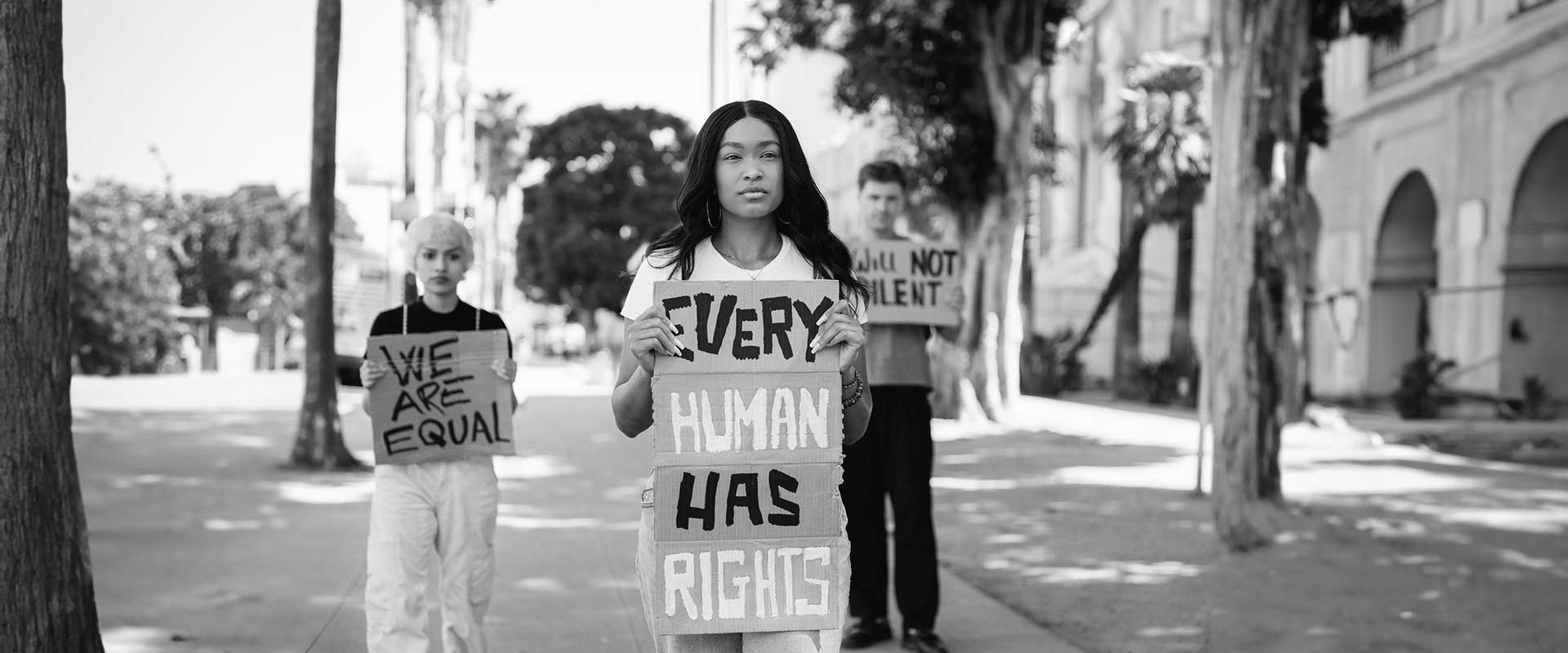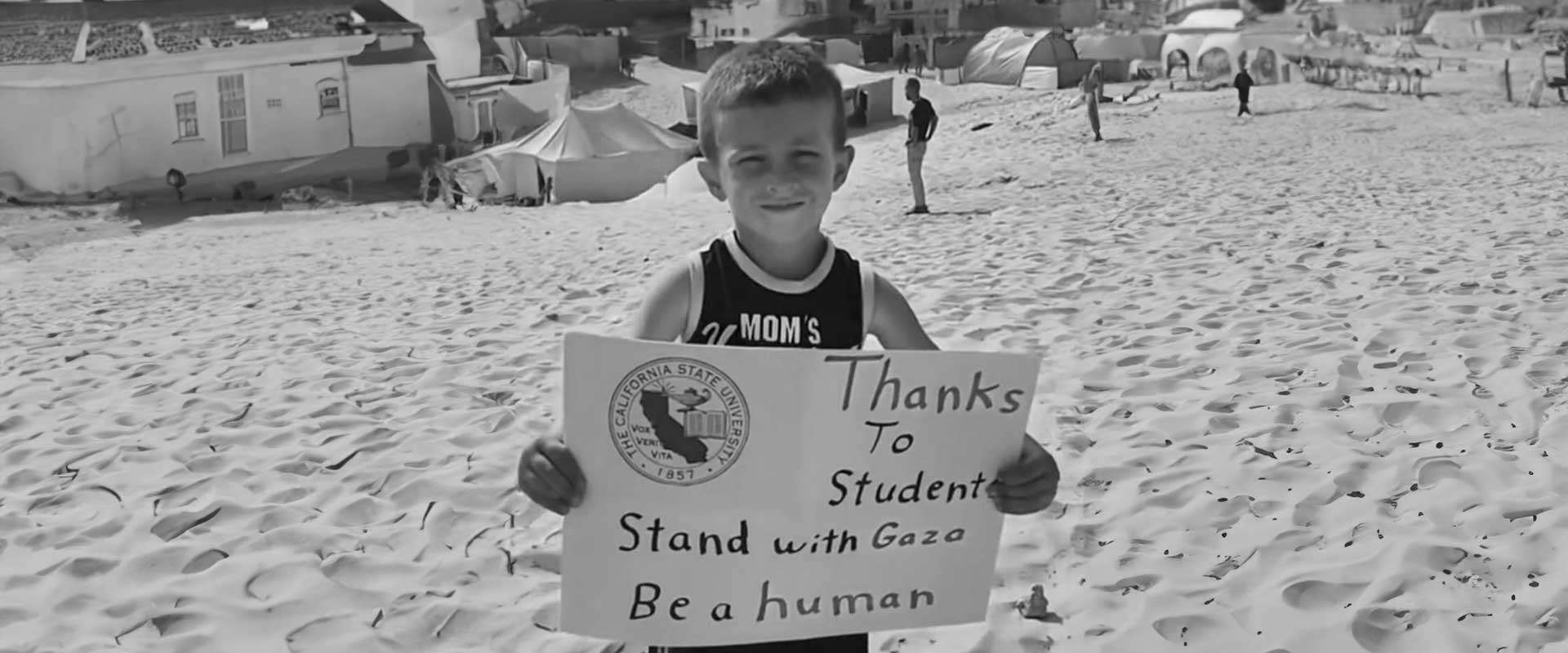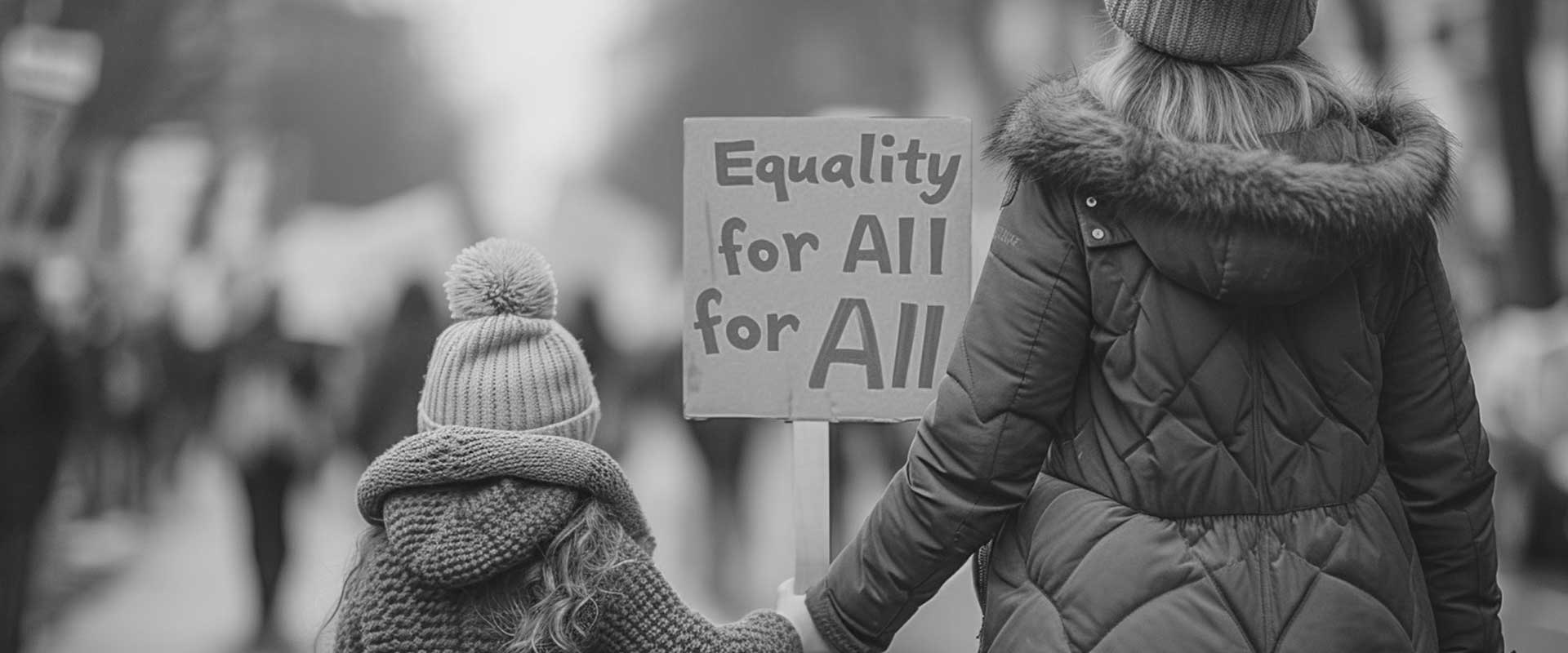The Council of American Islamic Relations, the nation’s largest Muslim civil rights and advocacy organization, received a ‘Staggering 2171 Complaints” of anti-Palestinian racism in just two months from October 7th to December 2nd, 2023. An over 170% increase in reports compared to the same time the year before. 2
“Anti-Palestinian racism is a form of racism that “silences, excludes, erases, stereotypes, defames or dehumanizes Palestinians or their narratives.” 1
Anti-Palestinian racism takes various forms including:
- Denying the Nakba;
- Justifying violence against Palestinians;
- Failing to acknowledge Palestinians as an Indigenous people with a collective identity, belonging and rights in relation to occupied and historic Palestine;
- Erasing the human rights and equal dignity and worth of Palestinians;
- Excluding or pressuring others to exclude Palestinian perspectives, Palestinians and their [non-Palestinian] allies;
- Defaming Palestinians and their [non-Palestinian] allies with slander such as being inherently anti-semitic, a terrorist threat/sympathizer or opposed to democratic values. 3
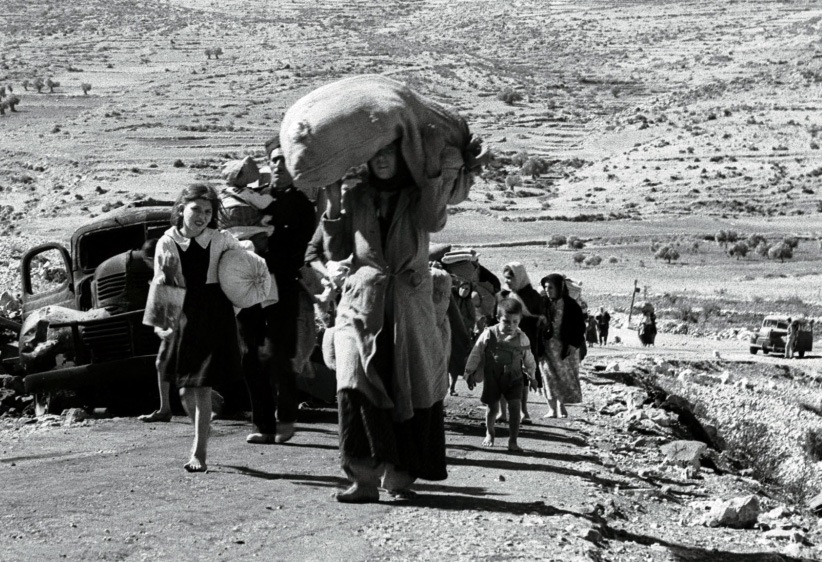
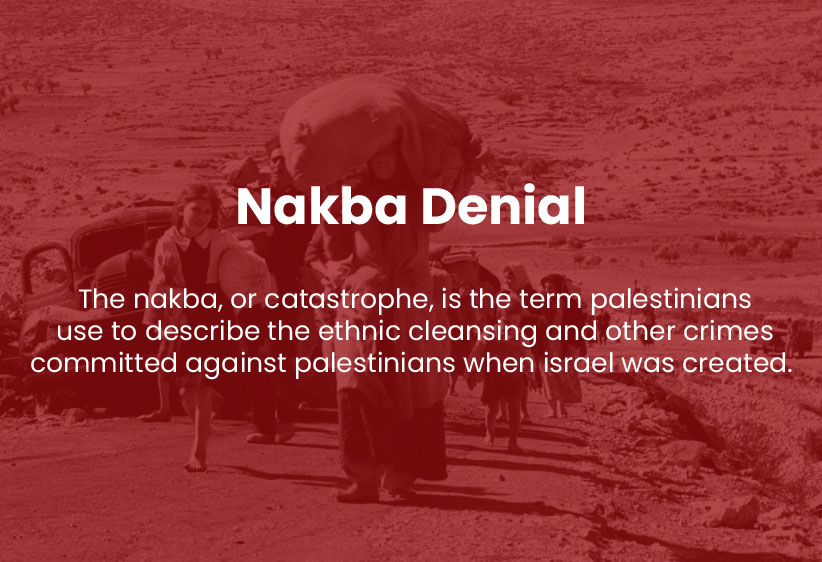
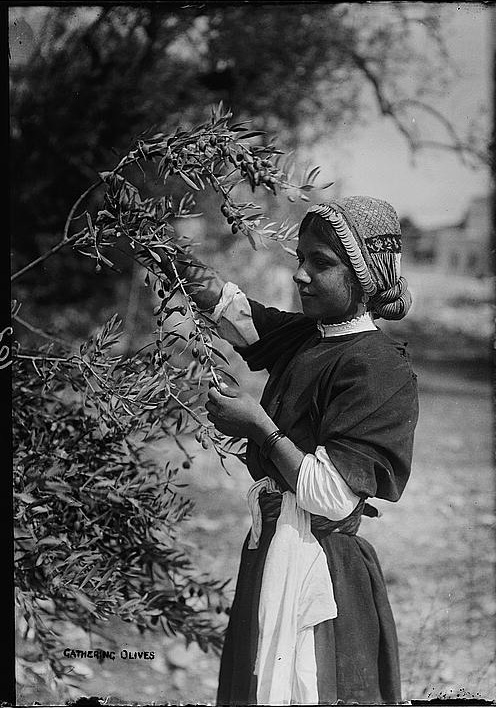
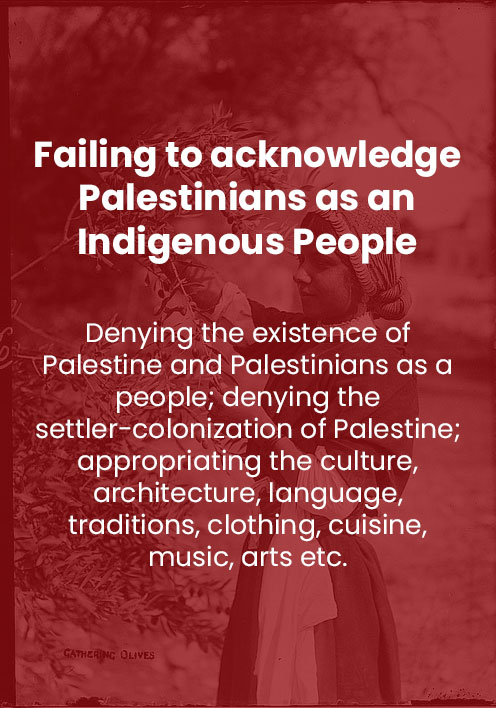
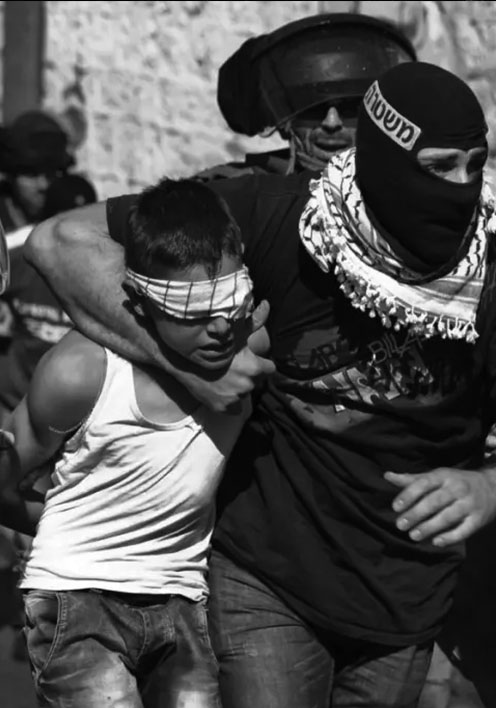
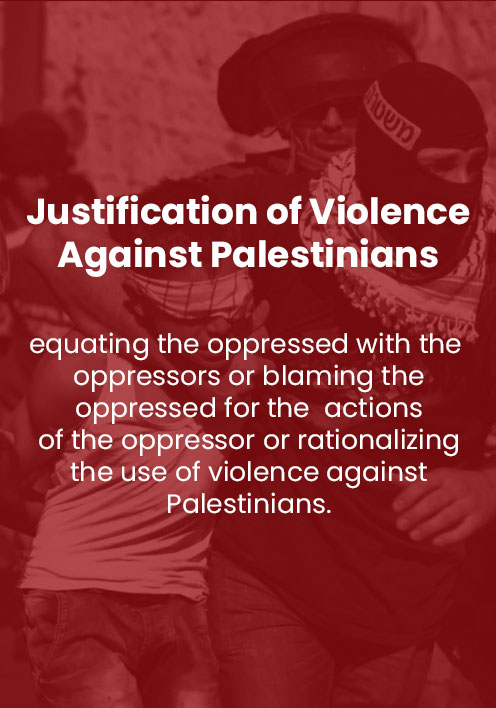
Why is this important?
The first known description of Anti-Palestinian Racism was published in April, 2022 by the Arab-Canadian Lawyers Association (ACLA). 4
Through decades of anti-racism and equity advocacy, the ACLA found that Palestinians and allies, such as advocates for Palestinian human rights, face a unique and profoundly distinct form of racism. The report, “Anti-Palestinian Racism: Naming, Framing and Manifestations”, was developed to help the community understand the experience of Palestinians and allies in the context of racism, discrimination and settler-colonialism frameworks. The “Anti-Palestinian Racism: Naming, Framing and Manifestations” report was developed after years of consultations with the Palestinian community and its advocates in Canada, as well as with anti-racism academics and activists. 5
The naming and framing of anti-Palestinian racism as well as the description of some of its manifestations are useful in clarifying the discrimination and bias faced by Palestinians and advocates of Palestinian human rights. It is important for advocates of Palestinian human rights as well as Palestinians to have an understanding of anti-Palestinian racism so that they can more easily identify discrimination they may encounter. It can also help institutions, organizations and companies develop policies to counter this form of racism. 6
At its core, anti-Palestinian racism aims to censor and erase Palestinians and their narratives from the public sphere either directly through punitive measures or indirectly by eliciting fear of punitive measures to deter anyone from sharing Palestinian narratives. Tactics take many forms depending on the context and often involve, but not limited to: defaming a person’s character and reputation; falsely accusing them of promoting hate, violence or antisemitism; denying or threatening to deny a person opportunities or advancement; dehumanizing Palestinians and negating their experiences; and/or portraying Palestinians as inferior people. The frequency and predictability of this backlash against those speaking on Palestinian rights results in a chilling effect on the open discourse on Palestine, and fear to participate in or openly support Palestinian initiatives. 7
This has been playing out during 2023-2024. For example, Hollywood actors have lost their jobs for expressing solidarity with Palestinian human rights. 8 Others also fear retaliation for expressing solidarity with Palestinians. 9 The fear of retribution contributes to the suppression of Palestinian narratives by deterring people from speaking out in defense of Palestinian human rights. 10 11 Another major impact of anti-Palestinian racism is the harm and trauma caused by the targeting of a racial identity.
Anti-Palestinian racism intensifies the anxiety of being Palestinian and can lead Palestinians to hide their identity for fear of being persecuted. 12 It also can socially isolate advocates of Palestinian human rights from their peers, colleagues and even their own families.13 This can have serious consequences, not only resulting in isolation but also potentially triggering anxiety, depression and other mental health issues.14
It is important to understand anti-Palestinian racism in order to address the censorship and personal harm caused by this form of racism. It is not meant to prevent discussions on Israel/Palestine. 15 It can be used as a working description and framework for institutions, organizations, companies and individuals in order to address incidents of anti-Palestinian racism, allow more productive discussions on Israel/Palestine, and to avoid attacks on the identities and rights of Palestinians and advocates of Palestinian human rights.16
The Arab Canadian Lawyers Association gives a non-exhaustive list of examples of anti-Palestinian racism in their report, “namely: Nakba denial, the justification of violence against Palestinians, failing to recognize the indigeneity of Palestinians, erasing the human dignity of Palestinians, excluding Palestinians and allies, and attempting to defame them.” 17 Often, one incident of anti-Palestinian racism will touch on several of the above examples due to their intersectionality.18
Selected Forms of Anti-Palestinian Racism
Nakba Denial
Nakba denial includes: “claims that there are no such people called Palestinians; that Palestinians do not originate from a land called Palestine; denial of the ethnic cleansing of Palestinians (along with accompanying crimes) to create the state of Israel;19 rejecting the inalienable rights of Palestinian refugees including the Palestinian right of return [and other rights delineated in the Convention Relating to the Status of Refugees]; appropriation of Palestinian history and culture without recognizing their origins;20 21 erasure of Palestinians’ connections to the land (i.e. emotional, historical, ancestral, cultural, economic).”22

Example:
Housespeaker McCarthy canceled a Nakba commemoration event organized by the only Palestinian American member of Congress. In addition to denying the Nakba, he accused Congresswoman Rashida Tlaib of using “antisemitic tropes.” Congresswoman Tlaib responded in a statement saying, “Speaker McCarthy wants to rewrite history and erase the existence and truth of the Palestinian people, but he has failed to do so. This event is planned to bring awareness about the Nakba and create space for Palestinian Americans who experienced the Nakba firsthand to tell their stories of trauma and survival.” 23
Justification of Violence against Palestinians
Justifying violence against Palestinians includes: equating the oppressed with the oppressors or blaming the oppressed for the actions of the oppressor or rationalizing the use of violence against Palestinians. The violence can be against Palestinians in Palestine or Israel or in the diaspora and can be committed against Palestinian lands (i.e. seizing lands, damaging natural resources), property (i.e. vandalizing or demolishing homes, businesses, religious centres), and persons (i.e. physical and psychological harms). 24
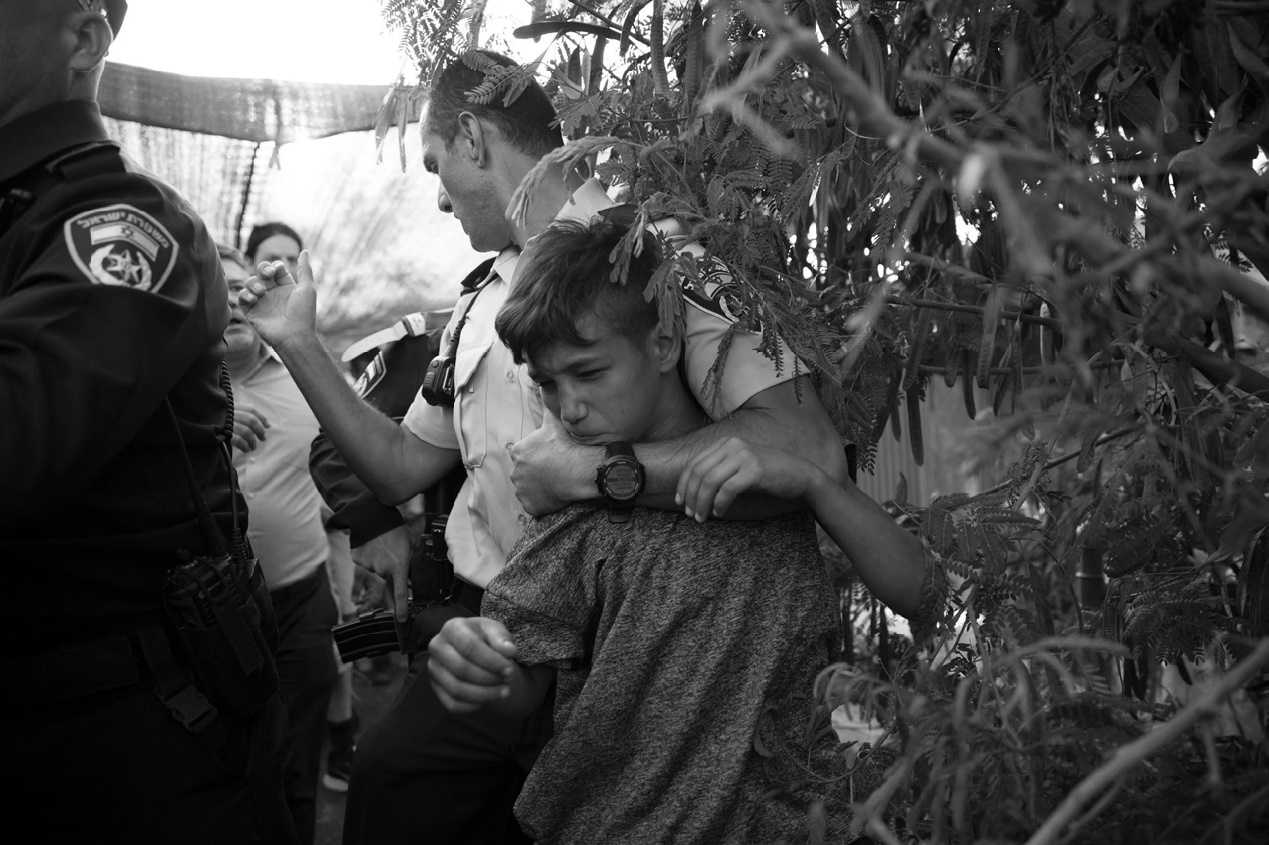
Examples:
1. On October 14, 2023, a landlord knocked on the door of a Palestinian tenant and stabbed to death a young 6 year old Palestinian boy. The killing of Wadea al-Fayoume is an example of justifying violence against Palestinians. The killer pleaded not guilty and blamed the 6 year old boy and his mother for the “violence in the Middle East”.
2. ‘I am not a threat’: Hundreds gather for vigil mourning 6-year-old Palestinian-American boy who was stabbed to death near Chicago 25
3. Texas woman arrested, accused of trying to drown 3-year-old Palestinian Muslim child in possible hate crime. 26
4. Palestinian students shot in Vermont say the suspect waited for and targeted them. 27
Failing to Acknowledge Palestinians as an Indigenous People
Failing to acknowledge Palestinians as an indigenous people includes: denying the existence of Palestine and Palestinians as a people; denying the settler-colonization of Palestine; 28 appropriating the culture, architecture, language, traditions, clothing, cuisine, music, arts etc. of Palestinians without acknowledgement of its origins; erasing Palestinian ancestral and present-day ties to their land and communities and denying their right to return; benefiting from, or complicity with, the removal of Palestinians from their lands; blocking redress of Palestinians in pursuit of their rights. 29
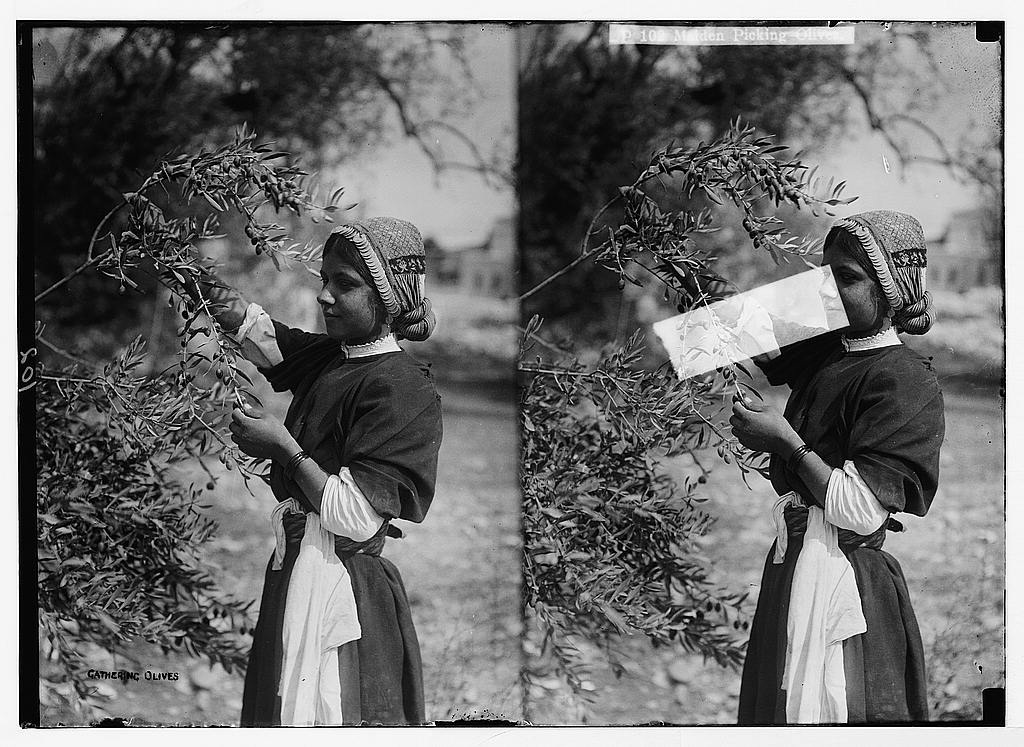
Examples:
1. On March 20, 2023, Israeli Finance Minister Bezalel Smotrich said there is “‘No such thing’ as Palestinian people. 30
2. The United Nations and the Inalienable Rights of the Palestinian People. 31
Erasing Human Dignity of Palestinians
Erasing human dignity of Palestinians includes: “devaluing Palestinian life and well-being; denying Palestinian agency to advocate for their rights; interfering or demonizing Palestinians for pursuing their rights; characterizing Palestinians as a people that are inhumane or lack value for human life or basic human emotions; excluding or smearing those who support or participate in Palestinian movements …[e.g. Palestinian freedom movements, boycott movements and others]; upholding a Palestine exception 32 to fundamental rights (i.e. support free speech rights but deny Palestinians from expressing their views); threatening physical or sexual violence. 33

Examples:
1. Israeli Defense Minister Ben Dahan, in 2013, said about Palestinians, “To me, they are like animals, they aren’t human.” 34
2. Defense Minister Yoav Gallant, on October 9th, 2023, “I have ordered a complete siege on the Gaza Strip. There will be no electricity, no food, no fuel, everything is closed,” and “We are fighting human animals and we are acting accordingly.” 35 In addition to calling an entire group of people “human animals” Gallant ordered the collective punishment of over 2 million Palestinians under Israeli military rule in Gaza, including one million children.
3. Refusing to acknowledge or denying the validity of the B’tselem, Human Rights Watch and Amnesty International reports on Israel and apartheid. 36 37 38
Excluding Palestinians and Advocates of Palestinian Human Rights
Excluding Palestinians and advocates of Palestinian human rights includes: “barring the hiring or appointment of [or firing of] Palestinians or advocates of Palestinian human rights and movements; denying funding or sponsorship for projects that include Palestinian narratives; denying proposals or submissions for projects or works related to Palestine; erasing mention of Palestine or Palestinian narratives in mainstream media; excluding Palestinians from speaking opportunities on topics related to Palestine; onerous requirements for hosting Palestinian events; omitting references to Palestinian identity or cultural contributions. 39
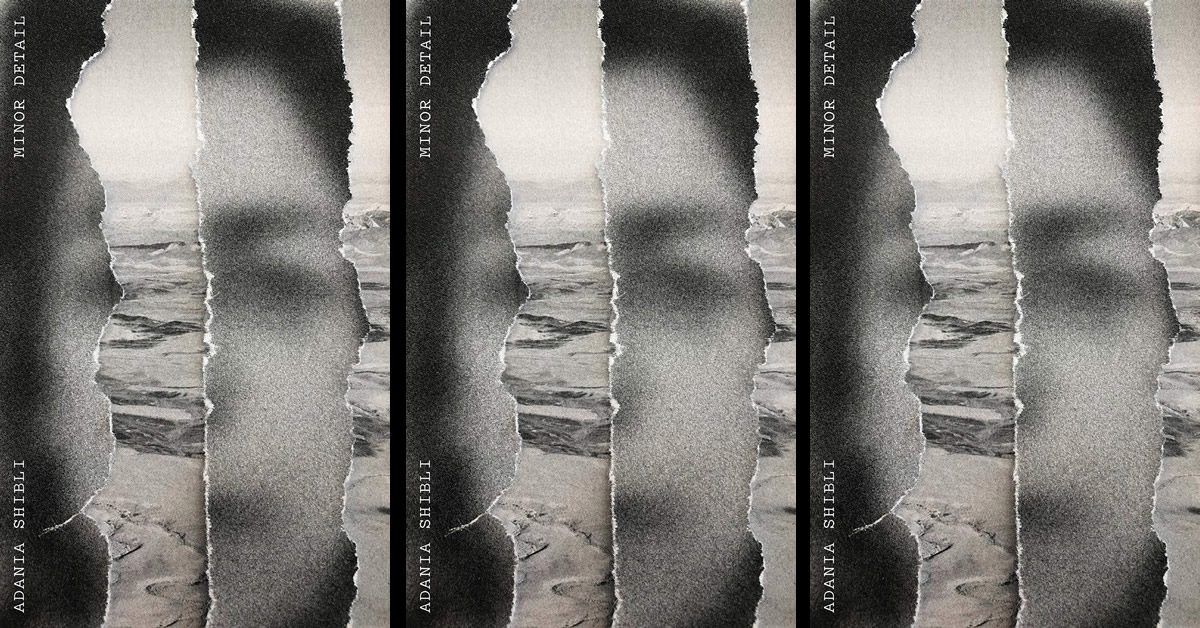
Examples:
Editor in Chief of ArtForum Magazine, David Velasco, was fired after publishing an open letter supportive of Palestinian human rights by calling for an immediate ceasefire, humanitarian aid into Gaza and broader freedom for Palestinians. 40
Defaming Palestinians and Advocates of Palestinian Human Rights
Defaming Palestinians and advocates of Palestinian human rights includes: “dehumanizing stereotypes that aims to “other” Palestinians in mainstream Western or Canadian society; depicting Palestinians as inherently hateful, violent, antisemitic, as terrorists, uncivilized, unintelligent, backwards, homophobic, misogynistic, … extremists, anti-democracy, untrustworthy, biased; and claiming Palestinian movements are motivated by hate or antisemitism. Advocates [for Palestinian human rights] are either discredited or smeared by these anti-Palestinian stereotypes (i.e. they are a terrorist sympathizer or antisemitic for holding pro-Palestine views). 41
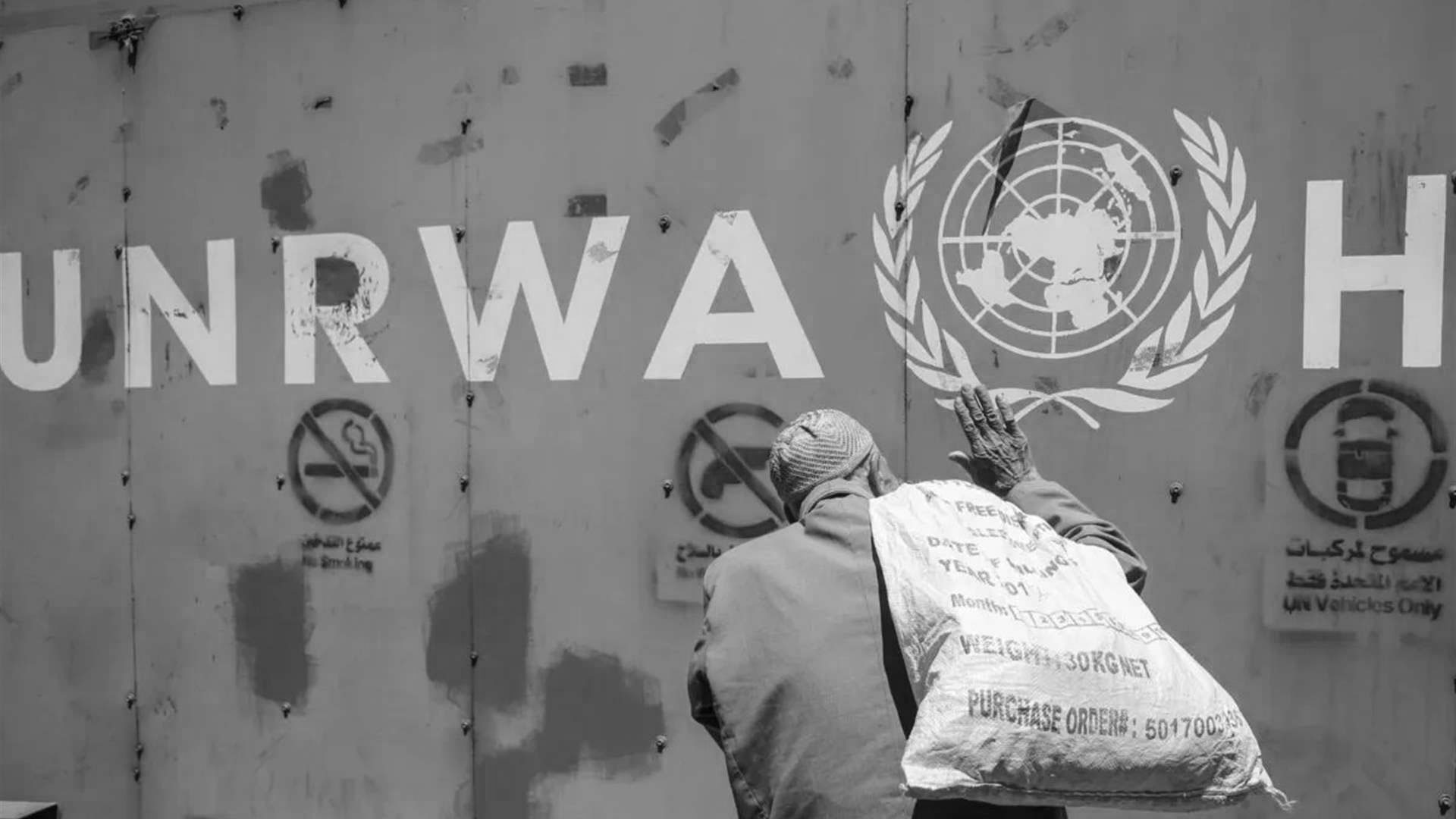
Examples:
1. A woman in Hickory Hills received a letter threatening to “burn” her family for putting a “Free Palestine” sign up in her front yard.42
In the example above, the implication is that Palestinian freedom would mean harm to Jewish people. In historic Palestine, Jews, Muslims and Christians lived together in peace for centuries. The idea that Palestinian freedom would mean that Jewish people would not have human rights is a form of racism against Palestinians.
2. According to the Associated Press, advocates of Palestinian human rights at UCLA, Penn and other campuses were falsely accused and misquoted. On their investigation, AP found that protestors were chanting “Israel, we charge you with genocide,” in regards to its 2023-2024 war on Gaza. Instead, these students had been accused of advocating for rather than against genocide.43
In this example, advocates for Palestinian human rights were defamed and discredited with false accusations and misrepresentations. There also was an implication that Palestinians and advocates for Palestinian human rights were inherently genocidal when they were, in fact, advocating against genocide towards Palestinians.
3. Former Harvard President Claudine Gay experienced was defamed and eventually forced to resign for her advocacy for freedom of expression and freedom of speech specifically with regards to Israel/Palestine. She reported receiving death threats for this and letters with racial slurs including the “n..” word.44
Targets of Anti-Palestinian racism
The primary targets of anti-Palestinian racism are: Palestinians, and in the US, Palestinian-Americans and advocates for Palestinian human rights. However, anti-Palestinian racism affects many more people because it also affects people who are “perceived to be Palestinian” 54 because of their skin tone, ethnic background, religion or even their clothing such as the 2023 shooting of Palestinian students in Burlington, Vermont. 55It also impacts those who ”simply express support for Palestinian rights.” 56
Regardless of whether a Palestinian or an advocate for Palestinian human rights is the focus, “every case of anti-Palestinian racism ultimately targets Palestinians. Ultimately, such racism entrenches the systemic oppression of Palestinians as an indigenous people whose lands have been taken and occupied by settlers,” 57 58
Anti-Palestinian racism affects different people in different ways. Palestinians, allies and advocates for Palestinian human rights can be affected by multiple forms of discrimination simultaneously.
Anti-Palestinian Racism is Distinct from other Forms of Racism
While there may be intersectionalities between anti-Arab racism and Islamophobia, anti-Palestinian racism is a distinct form of racism because it specifically targets those with a Palestinian identity and those advocating for Palestinian rights. By conflating anti-Palestinian racism with Islamophobia, it erases the diversity of Palestinians, who may practice many faiths or none at all and it mischaracterizes the conflict in Israel/Palestine as a religious conflict instead of one of settler-colonialism and apartheid;59 60; and resources directed at Islamophobia fail to address the sources of anti-Palestinian racism allowing it to persist.
The Difference Between Anti-Palestinian Racism and Islamophobia
Many people incorrectly perceive the issue of Israel/Palestine as a religious conflict between Muslims and Jews. However, not all Palestinians are Muslim and treating them as such, not only erases the identity of Palestinian Christians as well as Palestinians of other religions, it also reduces a regional, settler-colonial conflict to a religious conflict. This perpetuates stereotypes and a falsehood against Palestinians, Muslims and Jews.
Muslims may experience anti-Palestinian racism regardless of their perspective on Israel/Palestine, Palestinians may experience Islamophobia no matter their religion and Jews may experience anti-Palestinian racism for their advocacy for Palestinian human rights.
Palestinians can be any religion, including Christians, Druze, Muslims, Jewish, Buddhist, etc or they may be agnostic or atheists. Although there may be overlap between the two categories, anti-Palestinian racism and Islamophobia are distinct because anti-Palestinian racism specifically targets those with a Palestinian identity and their allies, regardless of their religion, race or ethnicity. 61
Israel/Palestine is fundamentally a settler-colonial struggle with Israel illegally occupying Palestinian lands. 63 The UN Special Rapporteur report states that “Israeli occupation violates Palestinian territorial sovereignty”, “endangers the cultural existence of Palestinians” and imposes “strategic fragmentation” showing “proof of intent to colonise the occupied territory.” 64 Israeli laws such as “In 2018, the Israeli parliament approved the Jewish Nation-State Basic Law that enshrines Jewish supremacy over Palestinian citizens [of Israel],65 codify discrimination against Palestinians.
“The implementation of this ideology targets Palestinians, their land, their culture and identity in order to maintain Jewish supremacy and accompanying narrative across Palestine. Palestinians in effect are being erased from the landscape. Falsely depicting the oppression of Palestinians as a religious conflict hinders the decolonization and liberation efforts of Palestinians, and restricts their ability to resist and testify against their injustices. Significantly and erroneously, this false reduction prohibits the possibility that Palestinian self-determination and Jewish self-determination are not mutually exclusive.” 67
The Arab Canadian Lawyers Association specifically notes an alarming tendency for institutions, organizations, elected officials, government entities, media and the broader community to conflate anti-Palestinian racism with Islamophobia. By doing so, these groups and communities not only avoid addressing anti-Palestinian racism but also downplay its importance and, in effect, contribute to the silencing and erasure of Palestinian voices and narratives.68
“For example, [Toronto District School Board’s,] TDSB’s response to complaints of anti-Palestinian racism relating to their scandals involving Davila and Cole and the Garneau student protest was to commit to providing resources and raising awareness on Islamophobia. The Tax Court of Canada’s response to Justice Spiro’s role in the Azarova hiring scandal, was to (inappropriately) bar him from hearing cases involving Muslim parties. Similarly, the CJC’s decision found Justice Spiro had good ties with the Muslim community so there was no concern for an apprehension of bias against Muslims, Arabs and Palestinians – without addressing the specific concerns of bias against Palestinians raised in the complaints. 69
“These examples, among others, present a worrying trend that whenever Palestinians and advocates raise anti-Palestinian racism, rather than investigating these complaints and taking accountability for their actions, institutions are obfuscating and avoiding anti-Palestinian racism entirely by instead pledging to take action on Islamophobia. The effect, once again, is to silence Palestinians and disregard their experiences, discourage Palestinians from reporting anti-Palestinian racism incidents, signal that this form of racism is acceptable, and enable anti-Palestinian racism and its accompanying harms to continue to be perpetuated against Palestinians and advocates.” 70

